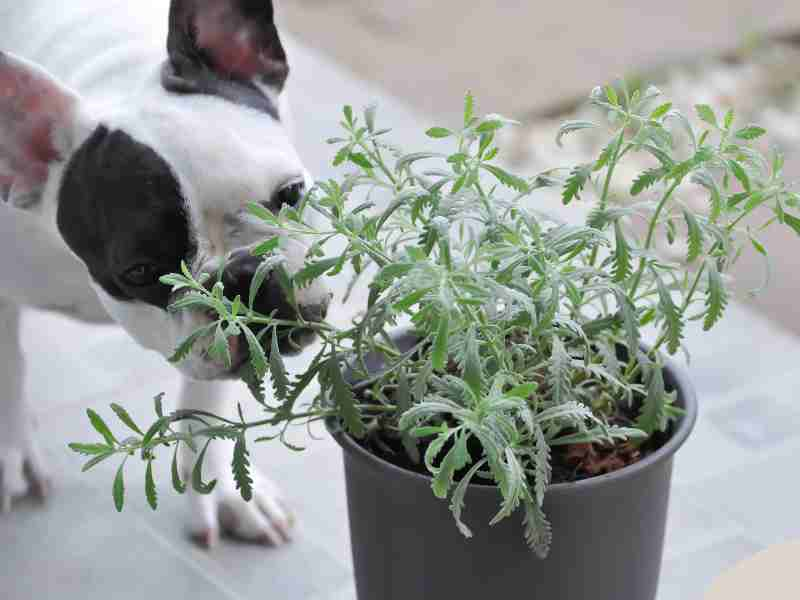Herbal support for canine health is a fascinating and growing field that combines traditional herbal practices with modern veterinary science to enhance the well-being of dogs. This isn’t just a new trend, though. Using herbs to support your dog’s body draws from a rich history of using natural treatments to support animal health. Veterinary herbalists adapt these traditional practices for dogs, using meticulously researched and applied information from history, alongside modern scientific research, to ensure both efficacy and safety for your dog.
Your Dog’s Digestive Tract: Worthy Of Support
The dog digestive system is designed to turn food into energy and nutrients to support overall health. It starts at the mouth, where digestive enzymes in your dog’s saliva start the digestive process. Food then moves down the esophagus into the stomach, where acids and enzymes break it down further. The small intestine is next, where most nutrient absorption occurs through its lining. The large intestine then absorbs water and electrolytes, forming solid waste, or poop, that exits the body.
Just like humans, dogs can suffer from digestive upset. Some common problems include gastritis, pancreatitis, inflammatory bowel disease, and general gastrointestinal upsets, which can cause symptoms like vomiting, diarrhea, constipation, and loss of appetite. These issues can come from various causes, such as dietary indiscretion, infections, chronic diseases, or stress. If you understand the root of the issues, you can often spot potential problems early and work to support your dog’s diet and gut health for their overall health.
And, historically, many cultures have used herbs to support the health of their animals. Ancient texts from China, India, and Egypt document the use of herbs in veterinary medicine. These practices were often based on observations of animals self-medicating in the wild. This is called zoo pharmacognosy, and it’s where animals instinctively seek out plants that can provide nutritional supplementation or relieve conditions. Watching animals do this has brought insight that has informed herbal veterinary practices for centuries.
Herbal Support For Dogs: What Does Nature Say?
In adapting the traditional practices they’ve seen in animals, veterinary herbalists have focused on several key areas. First, it’s ALWAYS important to identify and verify the safe and beneficial herbs for dogs. While many plants are healing, some are toxic to dogs and require careful selection and dosage if used.
Secondly, the dosage and form of herbal remedies must be adapted for dogs. Factors such as the dog’s size, breed, and specific health conditions need to be taken into account to ensure safety and effectiveness. We live in a world of, “If it’s good for me, it may be good for my dog,” and while that may be true for many things, it’s not for all. Especially when it comes to natural supports like herbs, spices, and essential oils. Like in humans, though, herbal supports for dogs might be administered in the form of tinctures, teas, powders, or capsules, often mixed with food to ensure palatability.
Integrating Holistic Approaches To Dog Well-Being
Integrating herbal practices into canine health also involves a holistic approach to well-being, considering their physical health and emotional and behavioral factors. Veterinary herbalists often work alongside conventional veterinarians, providing a complementary approach that supports overall health and wellness. It’s often thought that natural and holistic supports are not as effective, but recent scientific research has begun to validate the efficacy of many traditional herbal remedies, offering evidence-based support for their use in veterinary medicine. Studies on herbs like milk thistle for liver health, hawthorn for cardiac support, and St. John’s Wort (also called Sweet Basil) for behavioral issues have shown promising results, further bridging the gap between traditional knowledge and modern veterinary practice.
Herbal support for dog health is a testament to the longevity in the wisdom of traditional practices, refined through centuries of observation and consistently backed by scientific research. By embracing the holistic benefits of herbal remedies, veterinary herbalists provide dog owners with natural, effective options for supporting their pets’ health and well-being. This approach honors the historical relationship between humans and herbs and reinforces the bond between dogs and their owners, who only want the best health and happiness for them.
7 Herbs For Your Dog’s Diet
There are many herbs that herbalists believe offer health benefits for dogs, and they are offered as support for everything from stomach upset to helping them achieve healthy digestion to helping regulate blood sugar. Humans and dogs alike can benefit from herbs to help with digestive ailments, and research even suggests that supporting your dog’s immune system with herbs can be a natural way to help your dog’s health. Some of the most popular herbs for dogs include:
- Slippery Elm: Soothing Digestive Relief – Slippery Elm has been observed to provide soothing relief for digestive issues in dogs. An observational study involving 3952 dogs highlighted its effectiveness in managing vomiting and diarrhea, showcasing its potential as a safe and efficient option for gastrointestinal discomfort.
- Ginger: Nausea and Bloat Reduction – Ginger is renowned for its anti-nausea properties and has been shown to effectively reduce symptoms of bloat and nausea in dogs. Its compounds stimulate digestion and enhance food movement through the gastrointestinal tract, reducing discomfort and gas buildup.
- Peppermint: Relieving Digestive Spasms – Peppermint is valued for its ability to relieve digestive spasms and discomfort in dogs. Its antispasmodic properties can soothe the gastrointestinal tract, helping to ease symptoms of indigestion and gas.
- Dandelion: A Source of Prebiotics – Dandelion is recognized for its prebiotic content, supporting healthy gut flora in dogs. Its rich inulin content fosters a beneficial environment for gut bacteria, aiding in digestion and nutrient absorption.
- Chamomile: Gentle Digestive Sedative – Chamomile offers gentle relief for digestive issues in dogs, acting as a mild sedative to soothe upset stomachs. Its calming effects can alleviate symptoms of gastrointestinal distress, including gas and mild spasms.
- Fennel: Gas and Cramping Alleviation – Fennel effectively alleviates gas and cramping in dogs. Its antispasmodic properties help relax the gastrointestinal tract, reducing discomfort and helping to get gas bubbles out.
- Basil: General Anti-Inflammatory Support – With its anti-inflammatory and antimicrobial properties, it can contribute to overall gut health and help soothe minor digestive disturbances.
Methods of Giving Herbs to Dogs
Herbs can be introduced to dogs in various forms, including fresh herbs, dried powders, teas, tinctures, or capsules. The method chosen often depends on the herb’s intended effect and how well your dog will take it. For instance, powdered herbs might be mixed into wet food, while tinctures could be added to water or administered directly into the mouth using a dropper. Veterinary herbalists suggest the importance of starting with small doses to monitor your dog’s reaction and consulting with a veterinary herbalist for the correct dosage.
Incorporating Herbs into Daily Feeding Routines
Consistency and moderation are key to successfully integrating herbs into a dog’s diet. Introduce one herb at a time to observe its effects and ensure there are no adverse reactions. Incorporating a specific herb like ginger into daily meals can provide continuous support for ongoing conditions, such as digestive issues. However, for some short-term support, a more direct method of administration might be necessary for immediate help.
Bernie’s Best: The Best For Dogs Everywhere
When we first came up with the idea for Bernie’s Perfect Poop, we were already supplementing our dogs, Bernie and Lady, with natural and herbal ingredients to help support their bodies. We knew a natural and holistic way of life was what we wanted for our family, and of course, our dogs are family! We knew that good health starts from the inside out, and that’s why we carefully picked all the ingredients we did–the best ingredients for the best gut health benefits.
We are committed to making sure our dogs thrive with minimal pharmacological intervention, and we want that for your dog, too. As pet parents, we believe in giving our four-legged family members the best of what nature has to offer, and that’s what you’ll find in all of our products. It’s our promise to you.


